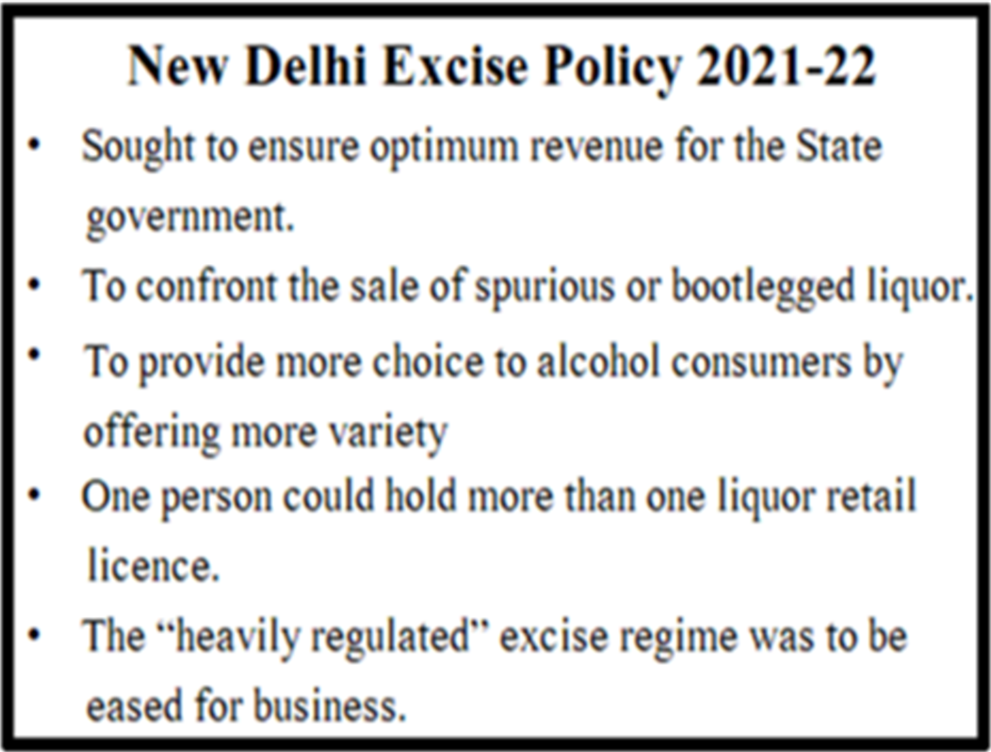L-G SHOULD ALLOW KEJRIWAL FULL LEGAL RECOURSE
Syllabus:
GS 1:
Constitution of India —historical underpinnings, evolution, features, amendments, significant provisions and basic structure.
Why in the news?
Arvind Kejriwal’s refusal to resign after arrest on bribery charges, sparking legal and political debate over governance from jail.
source:slideserve
| Understanding the constitutional Provisions related to theAppointment of Chief Minister (CM):
Constitutional Provision: ● Article 164 of the Constitution mandates the appointment of the Chief Minister by the Governor. ● The leader of the party winning the majority of seats in the assembly elections is typically appointed as the Chief Minister. ● Appointment: Mandated by Article 164, appointed by the Governor based on party majority. ● Authority: Real executive power lies with the Chief Minister despite nominal authority of the Governor. ● Tenure: Serves at the Governor’s pleasure, removal via no-confidence vote by State Legislative Assembly. Powers and Functions: ● Council of Ministers: Recommends ministerial appointments, reshuffles portfolios. ● Governor Relations: Acts as a link between Governor and state council. ● Legislature: Announces policies, recommends dissolution of assembly. About the Governance Model Of New Delhi: ● New Delhi: Union Territory under Article 239AA, designated as National Capital Territory. ● Governance: Led by Lieutenant Governor (L-G) following aid and advice of the elected legislative assembly. ● Exception: L-G holds authority over public order, police, and land matters. ● Article 239AA: Allows L-G to refer disputes with the Council of Ministers to the President. ● Dual Control: Results in power struggles between L-G and elected government. What is Enforcement Directorate (ED)? ● Establishment: Founded in 1956 as an Enforcement Unit under the Department of Economic Affairs, later renamed as Enforcement Directorate in 1957. ● Administrative Control: Currently under the Department of Revenue (Ministry of Finance) for operational purposes. ● Functions: Responsible for enforcing the Foreign Exchange Management Act, 1999 (FEMA), and certain provisions of the Prevention of Money Laundering Act (PMLA). Empowered to attach assets of culprits violating FEMA and undertake actions like search, seizure, arrest, and prosecution under PMLA. ● Appointment of Director: The Director is appointed by the central government based on the recommendation of a committee chaired by the Central Vigilance Commissioner, with members including Vigilance Commissioners, Home Secretary, Secretary DOPT, and Revenue Secretary. What is the Central Bureau of Investigation (CBI)? ● About: ● The Central Bureau of Investigation (CBI) is India’s premier investigative agency. ● Established in 1963 by the Indian government based on the recommendations of the Santhanam Committee. ● Legal Basis: ● Not a statutory body; derives its investigative powers from the Delhi Special Police Establishment Act, 1946. ● Control: ● Operates under the jurisdiction of the Ministry of Personnel, Public Grievances, and Pensions, which is under the Prime Minister’s Office (PMO). ● Superintendence for investigations related to the Prevention of Corruption Act is vested in the Central Vigilance Commission. ● Functions: ● Initially tasked with investigating corruption in government departments and public sector undertakings. |
Understanding the Issue Related to Arvind Kejriwal’s Arrest and Legal Recourse:
- Arvind Kejriwal, Chief Minister of Delhi, was arrested by the Enforcement Directorate (ED) on charges of bribery related to liquor licences.
- Despite his arrest, Kejriwal has refused to resign and intends to continue running the state government from jail.
- He asserts the principle of “presumption of innocence” until proven guilty, emphasising that he is only an accused and not yet convicted.
Understanding Legal Precedent and Party Stance:
- According to the Supreme Court’s 2013 ruling in the Lily Thomas case, a lawmaker would be disqualified upon conviction for two years or more.
- The Aam Aadmi Party (AAP) argues that Kejriwal is not convicted yet and anticipates his eventual release.
- The party contends that if the ED and CBI prove their case, automatic disqualification would apply, prompting Kejriwal’s resignation.
About Constitutional Provisions and L-G’s Role:
- Article 239AB of the Constitution, applicable to the NCTD, empowers the Lieutenant Governor (L-G) to recommend imposition of President’s rule.
- L-G V K Saxena has declared opposition to governing from jail, setting up a clash between the AAP government and the Union government.
About Legal Standing and Court Decision:
- The AAP’s reliance on the presumption of innocence doctrine is supported by legal principles.
- The Delhi High Court rejected a petition seeking Kejriwal’s removal as CM, citing no legal impediment to his continuation.
- The court deferred to the L-G’s jurisdiction, indicating that the President may review the matter.
Conclusion:
The L-G should heed the court’s decision and refrain from hastily seeking Kejriwal’s dismissal.The legal process should be allowed to unfold, with due consideration for the presumption of innocence and constitutional provisions.Legal intricacies require careful consideration to uphold democratic principles.
Source: Indian Express
Mains Practice Question:
“Discuss the constitutional and legal dimensions surrounding the arrest of Arvind Kejriwal, Chief Minister of the National Capital Territory of Delhi (NCTD), by the Enforcement Directorate (ED) in connection with an alleged bribery case. Evaluate the implications of the presumption of innocence doctrine and relevant legal provisions such as Article 239AB of the Constitution on the governance of NCTD. Analyse the role of the Lieutenant Governor (L-G) of Delhi and the Union government in addressing the situation, considering the recent developments and judicial perspectives.”
Note: For More information visit this site https://universalinstitutions.com/kejriwals-arrest-is-delhi-awaiting-presidents-rule/




